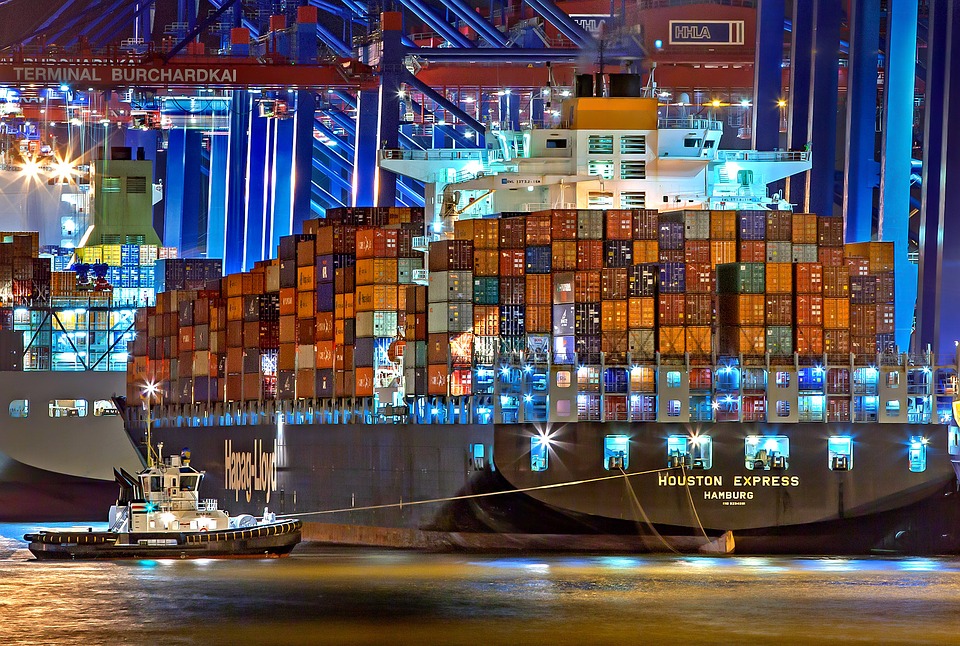7 Ways Technology Is Transforming the Shipping Industry

Traditionally shipping industry is considered a slow to change, but you will be surprised to know that technological advancements are transforming it rapidly. From decades, the maritime sector is using traditional approaches such as cargo ships, bulk carriers and radio signals etc. However, in this article, we are going to discuss significant technology trends that are going to decide the future of shipment world.
Table of Contents
IoT (Internet of Things)
The Internet of Things is making revolutionary transformations in every commercial enterprise, but its role in shipment world is outstanding. Basically, IoT is comprising of a cloud-based database and a GPS that collect and store data from all devices available on ships. This advanced technology doesn’t only help to improve management discrepancies but also offers real-time data to track shipments and enhance customer service.
Moreover, with the help of wireless network, IoT can connect the robots, cargo gadgets and sensors. In brief, this technology is not only going to reduce the shipment costs, overcoming route turmoil but also giving great ease to door-to-door delivery services. Therefore, whether you run a technology-centric car shipping company or a cargo company you should try IoT to improve quality of service. Uber has even started using this smart technology for its delivery business.
Eco-Friendly Ships
As more than 90% of transportation of goods is being done with the help of ships that’s why it is the primary responsibility of shipping companies to adopt green approaches to carry and deliver products. Although, many companies are using wind-powered vessels that use sustainable energy like sunshine or wind but the speed of these ships is still lesser as compared to gas-powered ones. So, the companies that will find ways to introduce eco-friendly crafts quickly in the market with efficiency will get more chances to excel in the industry.
Robotic Automation
From packing to inspection and firefighting robots are giving their best in shipment industry. Similarly, this technology is epic at performing logistical tasks especially this technology made the number tracking, recording and chasing of delivery destination and order collection effortless. Recently, Amazon also acquired the Kiva Systems to retrieve orders from its warehouses. Now, this company is known as “Amazon Robotics” that is working to establish the shipment process of Amazon adequately.
On the contrary, the use of robots also allows the companies to navigate and detect the location of vessels in the case of any climatic disaster or attack. Likewise, the arrival of ‘mini-robots’ could also be expected to reduce the need for a workforce on ships in the next years.
Blockchain
Indeed, financial departments of many well-known shipment firms are already using this technology, but still, there is much scope for the transportation industry. With the help of this digital technology, it is quite easy to streamline data spreadsheets, inventory records and travel logs with the involvement of both parties that are concerned regarding the transactions.
In addition, blockchain technology allows the shipping firms to track and store millions of vessels that are being carried annually with high transparency. Though it is little complicated to deal with the monetary policy of the company with this technology but it can reduce your finance expenditures with intelligible transactional and trading records.
Revival of Trains
It is straightforward to understand that technology is not only revolving around innovations but, it is also about advancing the aged automation. Yes, the rebirth of trains can also affect the business of both goods and car shipping industry. In the past, people were avoiding the transportation of goods via trains because they were expensive and emitting a lot of carbon in the air.
Anyhow, better infrastructure and immaculate technologies transformed rail freight transport. That means shipping companies are going to face fierce competition in upcoming years as fast delivery routes and low train freight rates are getting the attention of customers.
Automated Ships & Trucks
I know most of you would say that transportation companies are already using automated cranes to transfer containers. However, the future will beyond as a recent PwC study says that self-driving vehicles would able to deal with 78% of shipment by 2030. Here, I am going to share some updates with you:
- Automotive giants including Volvo and Tesla are working on the successful construction of autonomous trucks.
- Google and Apple are piloting driverless vehicles with great passion.
- According to World Maritime News, China is verifying crewless surface vehicles (USVs).
Moreover, automated ships wouldn’t only downsize the need for the crew but will also overcome the probability of human error. In the same token, both autonomous trucks and vessels will be environment-friendly as they use less fuel as compared to traditional ones.
Drone Deliveries
Probably, many of you have heard the news of Amazon’s first drone delivery that inspired the shipping world regarding the use of drones in distributions. The use of drones in the delivery process doesn’t only reduce the carbon emission, fuel consumption and vehicle transportation cost but also decreases the need for labour. A number of companies are showing interest in drone deliveries, and nowadays, Airbus has begun trials for shore to ship deliveries of parcels with drones.
Final Thoughts
Though upcoming technology is creating a big room for improvement for shipment but the disadvantages of this technology can’t also be ignored. First of all, if we discuss the advantages of future technology, then it will cut down the human resources, manual work and cost. In the same token, shipment firms will also be benefited from better navigation, high-efficiency rate and speedy deliveries.
On the other hand, if we talk about the drawbacks of these technology advancements, then the use of the internet in each task of freight will enhance the cyber security risks. To avert these kinds of limitations, regular data audits, server updates and an overall examination of entire technology should be the usual habit of shipping companies. In the same context, to ensure the security standards, ship engineers, device operators and software developers should play their role responsibly to avoid damages.
All in all, the smart technologies mentioned above are transforming the shipping industry gradually. That’s why transportation industries should adopt these technologies timely to assist shipping operations with great responsibility.





